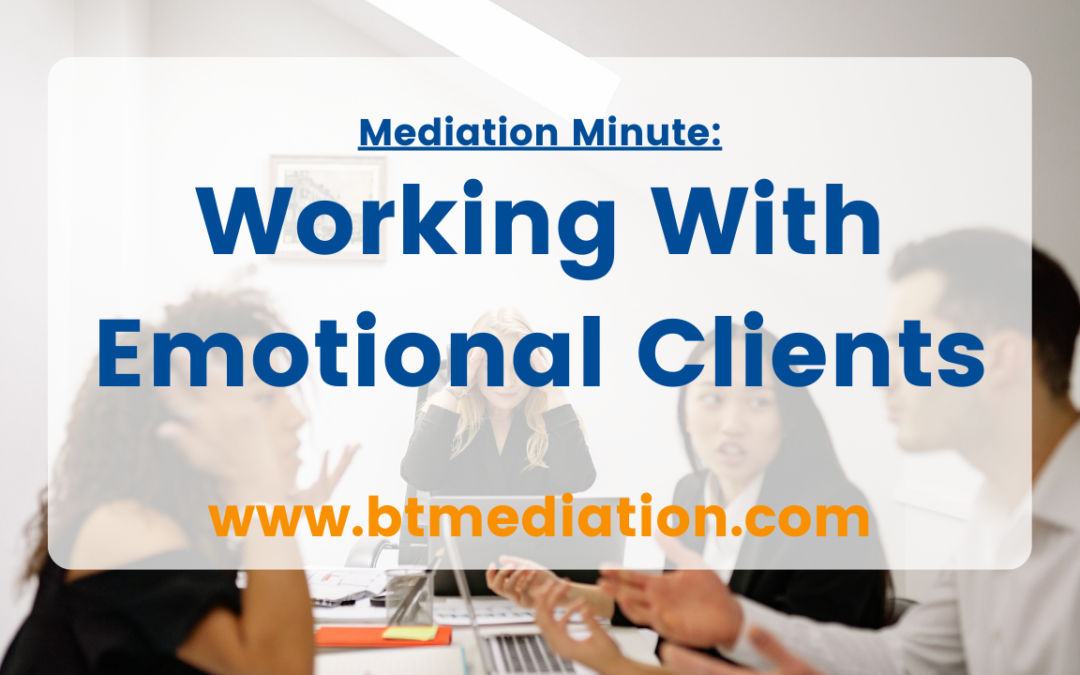Welcome to this month’s Mediation Minute. Today’s topic is working with emotional clients, or emotional opposing clients, because either way, those emotions are going to drive their decision-making process–at least initially. So you have to acknowledge that the emotions are present, and then you can figure out how to work best with them.
So how do you do that?
First, listen. Let them get it out. Let them vent if that’s what they need. If they’re upset and they don’t think that anybody cares about what they’re saying or feeling, then it’s going to be very hard to make progress. Once they’ve gotten it out, now you can go back and actively listen. Engage and ask questions, and try to understand something you might not have grasped the first time, and then paraphrase it back to them. You might feel like they promised one thing and delivered something else. Whatever it is, try to get an understanding of what they’re feeling.
Don’t patronize them. It’s never going to help. It just comes off like you think you’re superior, and they’re not going to take it well. Just try to work with them and try to understand what they’re thinking and feeling.
The next step is to understand their motive. Why do they feel that way? But instead of asking why, it’s better to ask how, or what. Example: “What makes you feel that way?” “What makes you believe that?” “How did you get there?” “What makes you say that?”
Let them go through it all. That will start pulling out some of the evidence that may, or may not, apply. They promised something, and you know darn well that the contract doesn’t have that in there. But let them get that out so you can then work with what they promised if it’s not in the written contract. How do you show someone that the contract says that anything that was discussed beforehand is now merged and included in this? Because now they’re going to start having to think through: just because that’s what I believe that’s what was promised, if I signed it and it’s not there, then there’s not much I can do about it.
And maybe they’ll ask: “If it was promised, doesn’t that count?” And then their own attorney can say to them, “well, if it’s not in writing, it’s almost impossible to have that effect.”
But you’ll never get to that step if you jump right to it. You have to show them that you understand how they’re feeling and why they’re feeling it. It’s only at that point that you can then take the emotion out of the decision-making process. And that’s what good mediators can do. They can help you, your client, and the other side to start taking some of the emotion out of it so that everyone can make a rational decision based on what would likely happen in court.
As always, we hope this helps you out, and make sure to stay tuned for further Mediation Minutes where we provide you with free advice on how to get the most out of mediation. Contact us today if you think you might be in need of our services!


Recent Comments